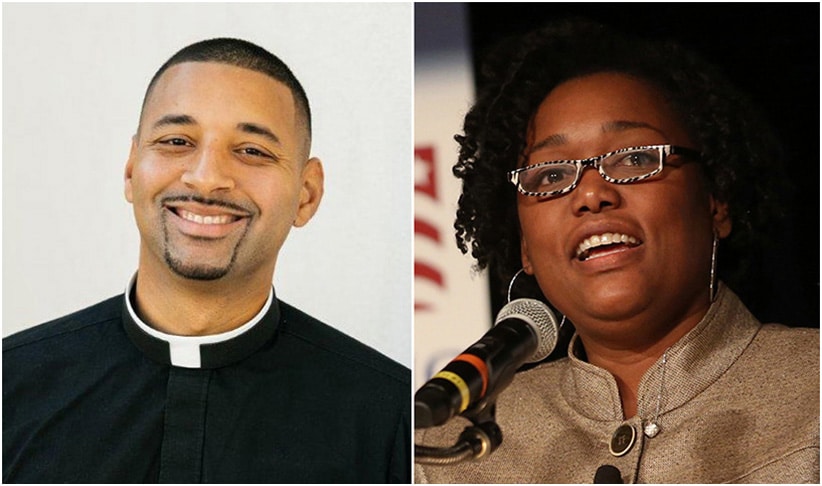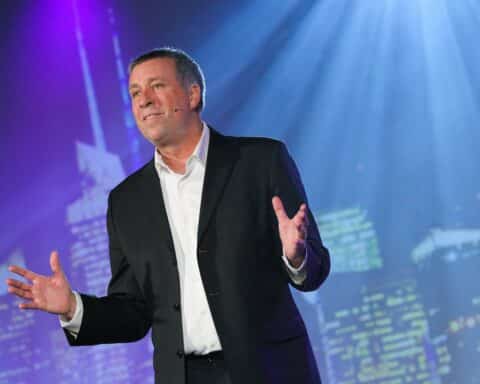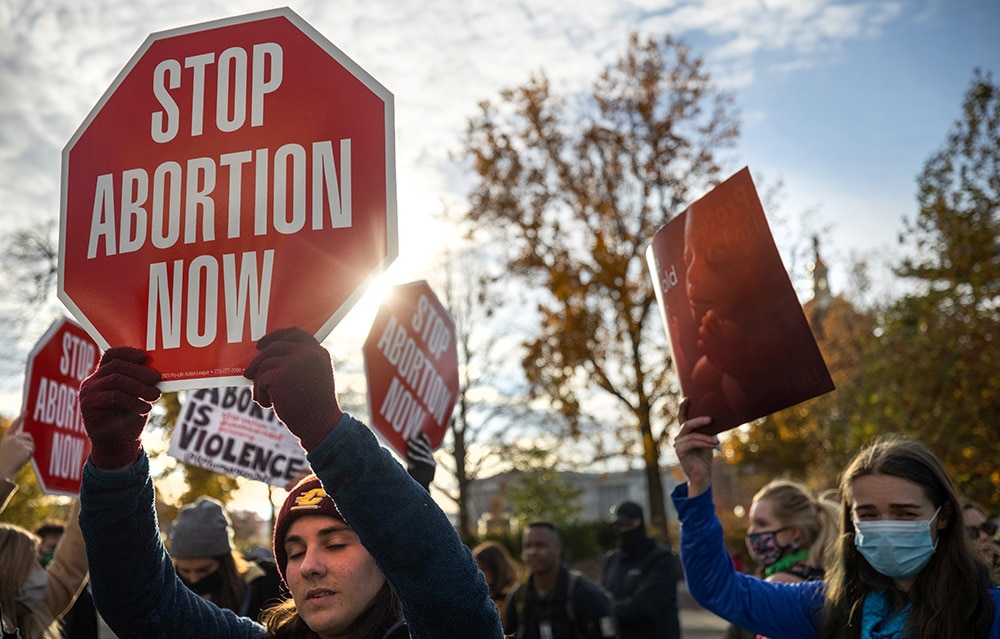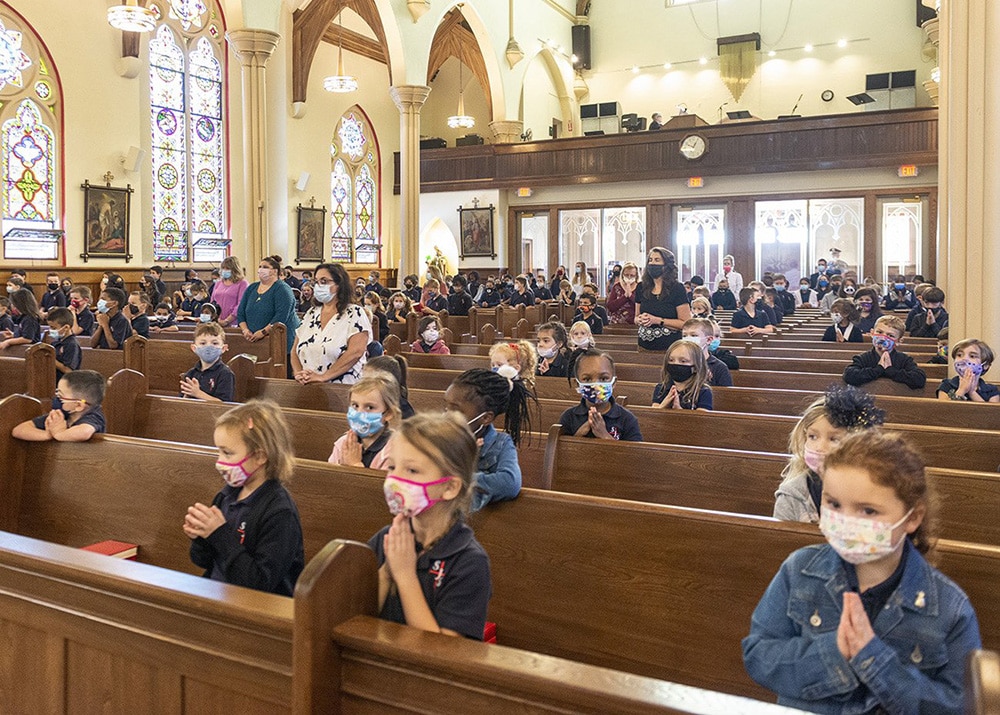In attending Catholic women’s conferences over the years, Leticia Ochoa Adams said she almost never saw speakers who looked like her. The conversion stories she heard were poignant, but she often couldn’t relate to them.
“I’ve read memoir after memoir from conversion stories, and none of them speak to being born without a father like me, being raised in poverty with a single mother, or being called racial slurs as a child,” said Adams, 43, who is Latina and grew up in a small rural town in south Texas.
Frustrated about the lack of diversity she saw at these conferences, Adams said she called several event organizers, many of whom told her they didn’t know or could not find Catholic speakers who were Black, Hispanic or of other ethnic and racial backgrounds.
“We get so comfortable in our small little communities, and the Catholic speaker community is a community,” Adams told Our Sunday Visitor. “Everybody knows everybody. I know the stories. I know where they live, what conferences they go to, what conferences they organize.
“The way people break through in the Catholic speaking world is through networking, through knowing people,” Adams said. “The Catholic speaking world was, is, very white, and I think no one ever really questioned that, because it was comfortable.”
Adams is trying to change that with Catholic Speakers of Color, a new website that features a lineup of black- and browned-skinned Catholic men and women who event organizers can reach out to for their perspectives on theology, Catholic social teaching, catechesis, evangelization, Theology of the Body and other topics.
“All I want is for these men and women to get speaking jobs, for these conferences to have great speakers and for the Church to be a leader in this space,” Adams said. “I want Catholic women’s conferences to be leaders that this is what it looks like to be Catholic, to be universal, to have many flowers in the garden.”
Some of the featured speakers may already be known to general Catholic audiences, such as Gloria Purvis of EWTN Radio or Father Josh Johnson, a published author who is the vocations director for the Diocese of Baton Rouge, Louisiana. But most of the speaker lineup will probably be new to Catholics who do not normally hear or seek out perspectives from people of color.
“This is something to elevate the voices you may not hear at conferences, to give us a fuller picture of what the Spirit is doing,” said Rakhi McCormick, 43, a wife and mother of three children who lives near Detroit and works part time in parish ministry.
McCormick, a first-generation Indian-American who converted from Hinduism when she was in college, speaks about her conversion, motherhood, spirituality and overcoming grief. She told Our Sunday Visitor that seeing people “who look like you” helps many to encounter Christ.
“We love the universality of our Catholic faith, but sometimes we forget that — that our Catholic faith encompasses many different customs, which are just as reverent as any other,” McCormick said. “I’m convinced the traditions we grew up with in our culture are so important, and they are an asset, not a detriment, in answering the call of who Christ has called us to be.”
Father Johnson told Our Sunday Visitor that there is “definitely a need” for something like Catholic Speakers of Color.
“As a person of color who would attend conferences as a teenager and a young adult, I never saw myself ever represented in any of the speakers,” said Father Johnson, who speaks on topics such as conversion, avoiding the near occasion of sin and growing in the spiritual life.
Father Johnson said “representation matters,” and that Catholics who attend conferences and other gatherings can benefit from seeing and hearing speakers who look like them and have similar life experiences.
“With conference organizers, if they’re at an all-white table, they’re not going to know what the Black community or the brown community is experiencing,” Father Johnson said. “And if they don’t touch on what we’re experiencing, then they’re not going to draw multitudes of Black and brown people to come to the table and/or stay at the table to receive the gift that they have to share, which is also a relationship with Jesus in the sacramental life of the Catholic Church, which is the best thing ever.”
Adams, who returned to practicing the Catholic faith about 10 years ago after falling away from the Church, said she has had a deeply personal relationship with God since her 22-year-old son, Anthony, died from suicide in March 2017.
“I’m just constantly in conversation with my husband, with my children and with God, all day every day,” said Adams, who told Our Sunday Visitor that the idea for Catholic Speakers of Color came to her a few months ago when she woke up at 3 a.m. and felt God’s presence.
“It was like God was sitting at the foot of my bed and said, ‘Hey, how about a list of speakers of color who are Catholic?” said Adams, who had been thinking about the Church’s uneven response to the national reckoning with racism in the United States.
Adams said she thought a website was a great idea, but she had no idea how to build one. She told God that she needed a web designer, money and speakers who would be willing to be a part of the project.
“I put it on God’s to-do list,” said Adams, who began by sharing the idea on Instagram. Before she knew it, people were talking about “the list” and sharing their ideas. A friend compiled a spreadsheet of Catholic speakers of color. A web designer volunteered her services and created a website, which went live in late October, that “blew” Adams away.
“God truly did it all,” said Adams, who laughs when people tell her that she’s brave or bold for spearheading Catholic Speakers of Color.
“I am none of those things. I am terrified, and I’m lazy. That’s my brand,” Adams said with a laugh. “But when God wants you to do something, he really opens the doors for you and puts the right people in the right place. I told God since the day I buried my son that I will walk through any doors he opens, and I know it’s God when they open easily.”
A few months ago, Adams said she had been thinking about her late son, Anthony, who was brown-skinned and looked more Hispanic than his siblings. She saw how he was treated differently, how that weighed on him, the compounded effects of intergenerational trauma, and the difficulty she had in accessing health care for him. While driving one day from Austin, Texas, to San Antonio, Adams heard Purvis on the radio talking about many of those realities for people of color. Overcome with emotions, Adams had to pull over.
“Gloria was speaking some truth. She was just laying it all out there,” Adams said.
Purvis, who has spoken with Adams several times since that radio show, told Our Sunday Visitor that she found the website to be a great idea to help Catholics of color who have difficulty getting speaking jobs because they are not connected to media apostolates.
“At these conferences, we often don’t see people of color in the speaker lineup,” said Purvis, who added that the exception tends to be events organized by apostolates like the National Black Catholic Congress. “Just to put people’s names out there in front of people is so helpful,” Purvis said, adding that Catholics of color are too often “invisible” to their co-religionists — conference organizers included.
“Would they have even known about us without this website?” Purvis asked. “People don’t think, ‘Huh, there might be a Latina woman who has something to say about how to catechize or understand something about papal infallibility and different issues of the day.’ Besides, why would anyone object to having additional voices to promote the Gospel?”
The bottom line, Adams said, is that Catholic Speakers of Color is about getting more of Christ’s people to share their stories to bring the lost sheep back into the fold and recruit more workers for the Lord’s vineyard.
“Because at the end of the day, what benefits us all is having more evangelizers to bring people to Christ,” Adams said. “Look around and read the room. People are disconnected from God, disconnected from the Church, disconnected from each other, and Jesus is coming.”
Brian Fraga is a contributing editor for Our Sunday Visitor.





